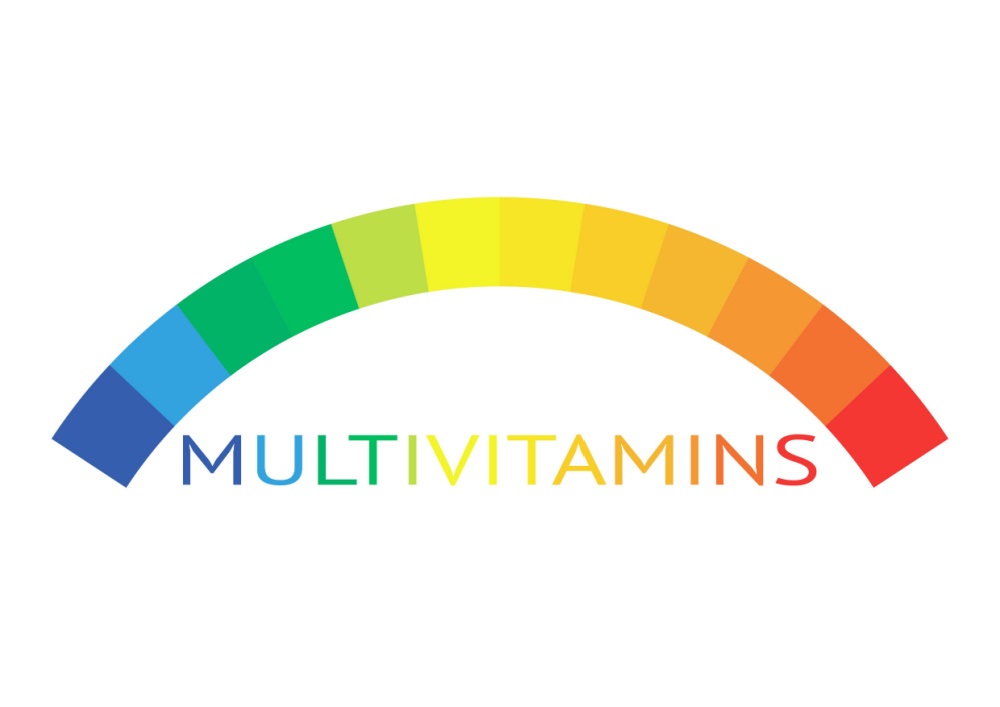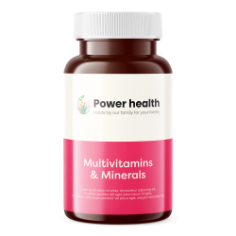Do multivitamins make you healthier?
Eating healthily with your 5 portions of fruit/veg each day and exercising regularly will certainly aid your general health. Sometimes you may still have that niggle which would benefit from a boost because you don't like brocolli or can't stand apples...
You might consider taking a multivitamin tablet to try and do everything you can to protect your health further. There may be little evidence to support the benefit of taking multivitamins in protecting the brain or heart but, there are definitely potential benefits and no risks from a one daily standard multivitamin tablet.
Research shows the risks in taking multivitamins are low, and there are real benefits for most of us.
Is it worth considering a multivitamin as part of a healthy lifestyle? If your diet isnt what it could be, maybe start there and look at multivitamins to fill the gaps of the food you can't/won't eat...

What are the first steps I should take to check if I would benefit from multivitamins?
These 4 steps will help you asses the possibility:
- Speak to your doctor to see if you really need to take a multivitamin. Do you have a vitamin deficiency?
- Look at your diet. Do you eat as healthy as you could? Is anything lacking?
- Do you want expert nutritional advice? See a dietician.
- Do not take high doses of specific vitamins, especially A and E. These may actually be harmful.
What are the benefits of multivitamins?
Inadequate levels of certain micronutrients can impair a wide range body's biological function.
As an example, a low intake of vitamin D and calcium over a long period of time can contribute to osteoporosis later in life. Low folic acid intake in pregnant women can increase the risk of problems in early pregnancy.
Vitamin inadequacies can also increase susceptibility to illness and chronic diseases. Not getting enough of certain micronutrients can also lead to impaired immune function, making you increasingly susceptible to infection.

Are there risks of taking multivitamins?
Excessive intake on any vitamins can cause problems especially high levels of certain nutrients.
Taking the advice from the 4 points above and reading the label on any multivitamin bottles you are considering using. It's fair to say that no single dose daily tablet would contain your full daily level of micronutrients particularly Calcium, Magnesium and Choline; the tablets would have to be huge and far too large to swallow...
If you have sought advice and the vitamin supplements you are taking aren't in addition to some other supplements, then your dosage would be fine if you follow the guidelines.
Who could benefit from taking multivitamin tablets?
As a nation, we are trying our best to improve our health. In 2021 a survey commissioned by the British Nutrition Foundation revealed that 62% of Britons have made a change to their diet to get healthier over the previous year.
Eating whatever we want is nice and far too easy a habit to slip into and not good over a sustained period of time but, looking at your diet and level of exercise (even a daily walk will help. A high percentage of the UK population is still physically active (over 60%).) is a good thing to review if you are on the slippery slope or not. How great do you feel after a healthy meal or exercise that gets your heart up a little?...
In general, these groups could benefit from taking multivitamins:
- Women who are of childbearing age, pregnant or breast feeding.
- Obese individuals who have increased requirements for some nutrients.
- Infants, children, and adolescents who are growing and developing.
- Older adults who can experience reduced nutrient absorption and appetite.
- People with nutrient absorption issues, including heavy alcohol users, people who had bariatric surgery and those on certain medications.
- People with lower nutrient intakes, including those not consuming a healthy diet, those facing food insecurity and potentially vegans or vegetarians.
- Those likely to be low in vitamin D, including people who use sunscreen, cover all exposed skin when outside or have darker skin pigmentation.

How can I choose the right multivitamins?
There is a mind-blowing choice when it comes to multivitamins from powders, gels, liquids, tablets and capsules as well as a huge number of differing brands, some well-known high street brands, others not so.
Best advice is to stick with a name you know or have been recommended to and, even better, if you can find a retailer that actually manufactures their own products, that's a bonus...
Making the smart choice and going for multivitamins that match in terms of; age, gender, pregnancy etc means you will certainly find the right product for you.
Conclusions
Taking multivitamins is not a one-way ticket to perfect health, however, in the right circumstances and if you are lacking particular vitamins due to diet, age, pregnancy or other, then they can be a good choice to help balance your nutritional needs.
Interested in browsing a range of vitamin supplements; take a look at some vitamin options here.












